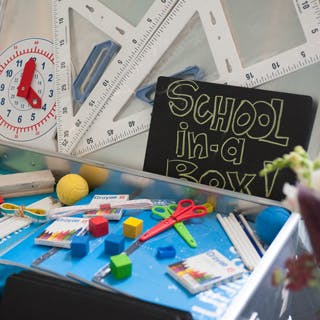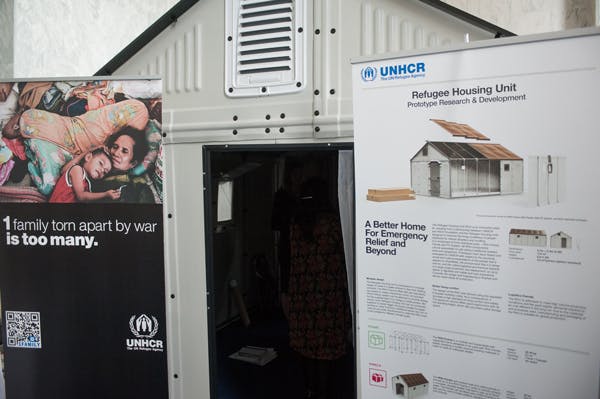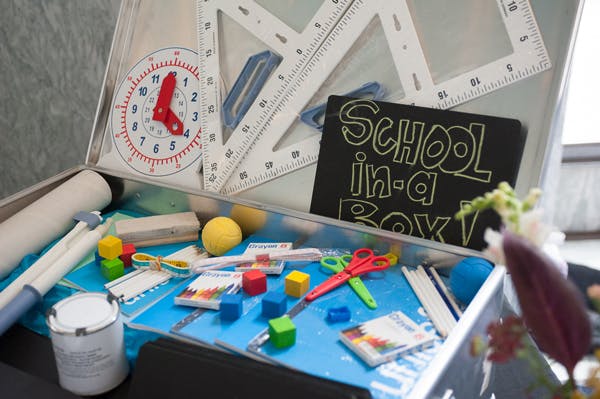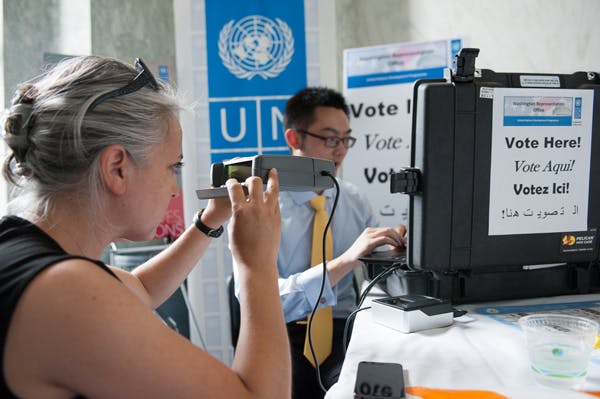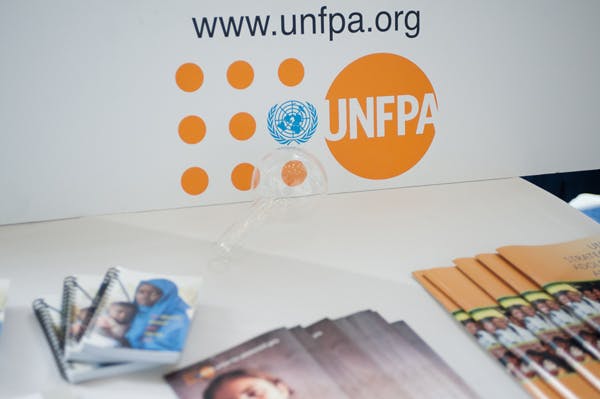How is a nearly 70-year-old organization keeping up with the times? The United Nations is getting innovative with some thinking that is quite literally out of the box. Late last week, lawmakers on Capitol Hill got a firsthand look at some of the most exciting new ideas coming out of UN agencies as they look for new ways to confront the world’s most grave crises.
Miss the reception? Check out some of the top ideas that were featured:
1. Refugee housing…by IKEA
From the people who probably furnished your first apartment and made the Allen wrench famous, refugee shelters are getting safer, more durable, and cost-effective. The UN Refugee Agency (UNHCR) and the IKEA Foundation are teaming up to create shelters that can comfortably house five people for more than three years, even in harsh conditions — a big leap from the tents that currently last an average of six months.
What’s more, these shelters harness solar energy to eliminate the need for candles or kerosene lamps, as well as a fabric shading sheet that reflects heat during the day and traps warmth at night. As for the people they serve—individuals who have been forced to leave their entire lives as they flee from conflict and violence — they provide a new measure of dignity and privacy.
The Allen wrench is not included — or needed. In fact, these modular shelters can be set-up entirely without tools.
2. Missing class? Not when you have School in a Box
Even in the aftermath of some of the worst imaginable disasters, the UN Children’s Fund (UNICEF) is getting kids back to school within 72 hours of an emergency. From a simple, easily-transported box comes a complete set of core tools like workbooks, pencils, erasers, a teaching clock, cubes for counting, a wind-op/solar radio, and posters of alphabet, multiplication, and number tables. The kit is supplied in a locked aluminum box, the lid of which can double as a blackboard when coated with special paint included in the kit. Using a locally developed teaching guide and curriculum, teachers can establish makeshift classrooms almost anywhere.
3. No fraud here: voter registration goes biometric
In nations where new democracy is fragile but entirely essential, the UN Development Programme has launched a biometric voter ID system. Countries like the Democratic Republic of Congo, Sierra Leone, and Cape Verde have taken advantage of the program’s ID system, which uses voluntary fingerprint and iris scans to identify voters and promote credible elections that prevent election fraud and inspire faith in the system.
4. The debit card feeding the world’s most in need
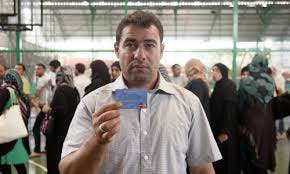 The UN’s World Food Programme is distributing prepaid debit cards to Syrian refugees, loaded with $27 per person each month. The cards allow the refugees to buy their own food and boost the local economy, without having to wait in long lines for paper vouchers or depend on pre-packaged rations. The program, which has been piloted in Lebanon, allows participants to purchase food from any of 300 participating stores across nation. And because the UN distributes IDs with the cards, the program is also helping to eliminate fraud.
The UN’s World Food Programme is distributing prepaid debit cards to Syrian refugees, loaded with $27 per person each month. The cards allow the refugees to buy their own food and boost the local economy, without having to wait in long lines for paper vouchers or depend on pre-packaged rations. The program, which has been piloted in Lebanon, allows participants to purchase food from any of 300 participating stores across nation. And because the UN distributes IDs with the cards, the program is also helping to eliminate fraud.
5. E-learning for midwives and frontline health workers
Through a partnership with Intel, the UN Population Fund (UNFPA) is strengthening the skills of midwives and other health workers using e-training modules that can be translated into a myriad of languages for workers who are delivering care on the ground. That means that education can take place anywhere, anytime, using real-time vital data registration and remote supervision and monitoring of the health care workers. The goal? Enhanced decision-making and performance of health care workers around the globe to improve maternal and newborn health.

